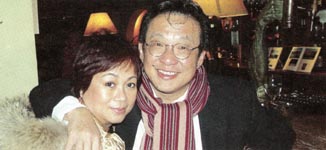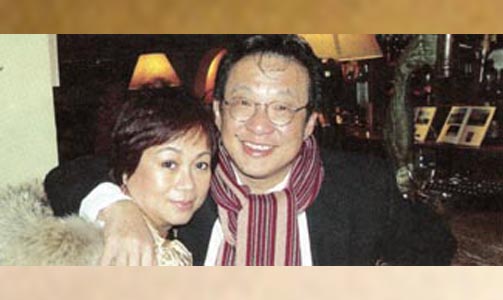Chariots Of Plenty

Wealth Magazine, March 2008 issue
By Bee Ong in Kuala Lumpur and Singapore
YTL’s accomplishments are rooted in consistency and an unrelenting belief that business must be a “force for good.”
Tan Sri Dato' Francis Yeoh's hard-edged leadership style has been apparent since he was a teenager. He was the school captain at Victoria's Institution, one of Kuala Lumpur's top four boys' schools, in 1973. That year, he says, the school excelled in nearly every field, from science to sports. He had taken the head boy's position as a career and saw it as his role to ensure that the school was top in everything the students attempted.
"I was always the good one, the police not the thief, so I never understood what was on the other side of the line," he says. He took discipline so seriously that he earned a few enemies in school, who expressed their antagonism by puncturing his car tyres. Today, his detractors are more likely to give vent in newspaper columns and blogs.
The age of 16 was a pivotal time for the conscientious young man. The training for student leadership taught him two values that he still uses in business today: Discipline and patience. It was also the year he made a heroic offer to drop out of school to help his father's construction business, which was battered by the oil crises.
That was also the year he laid a foundation that has served as a basis for his actions over the next decades. He discovered Christianity. "It was an epiphany that changed my life and how I think, and my values all changed. Without God, it's very hard to find values consistently and be a force for good. In fact, to survive, you would probably do anything, compromise perhaps," he says. Yeoh attributes all achievements to God. These include YTLs 55% compounded annual growth rate since 1986, a low staff turnover and one of the world's highest earnings-per-employee ratio.
"If you're a force for good, people believe in you and you do well. We chose good business models where we leverage on other people's technology and use it as a force for good, to come up with a formula to supply water and electricity at very competitive prices. That's why our profits and business model are very sustainable. The long-term thinking came from God. When you're a force for good, so-called wealth follows you because if you have the discipline and consistency to have faith in a good God, you would end up very well," he says.
"Rose was from Hong Kong, and they are a very competitive society. She pushed me a lot and it brought me to go for the best of the best. If you want to do something, you do something worthwhile or not do it at all. And that's why I miss her a lot."
It is also the source of his conservationist approach, which YTL started practising long before the green movement became fashionable. "To be a person of value, you have to understand that you are a steward of God's wealth and wealth comes through his forests, his trees and society at large, and you have to protect them. Only then are you counted as really giving back what God gave you. That is the ultimate end, so if success leads to the ultimate end, that's fine. But today, there is hardly anybody who does not count how rich someone is or his age. Nobody talks about, wow, I like the state of your heart, I like the colour of your soul.”
Three languages
Morality is salient at YTL. The group's employees are required to master three languages, and morality is foremost: "One is the language of God. He has to believe in some God, it could be the Bible or the Koran or the Torah, whatever, and that's a good start. If you believe in God and you understand the essence of God, you will have very good moral fibre. Morality's number one, stacked very high, so we ask them to participate in businesses where they have a clear conscience. The second is the language of machines - technology and so forth. And third, they have to be proficient in English, the international language of business. Every person at YTL is an ambassador of the brand and you have to articulate your business well.”
Power Of Two
Yeoh's ambitiousness found an ally in his late wife, Puan Sri Roasaline Yeoh, who appears to have played a significant role in the progress of YTL. She was a celebrity appearing in several Cantonese blockbusters and had her own TV show at Hong Kong's TVB before she met Yeoh. He proposed marriage within a fortnight of their first meeting and she left her career in Hong Kong to join him in Malaysia in 1982.
Puan Sri Rosaline urged him to never compromise on quality. "Rose was from Hong Kong, and they are a very competitive society. She pushed me a lot and it brought me to go for the best of the best. If you want to do something, you do something worthwhile or not do it at all. And that's why I miss her a lot," he says.
She started Cane Creations, a furniture and art gallery, which is one of the unlisted businesses in the YTL group. She spotted unknown Malaysian artists and exhibited their work in her gallery. She also designed the interiors of several major YTL projects such as Pangkor Laut Resort, the Ritz-Carlton Residences and parts of Starhill Gallery in Kuala Lumpur. She selected the furnishing, antiques and artwork in the Yeohs' penthouse at the Ritz-Carlton Residences, which staff say is only open to very few visitors.
Yeoh hosted Pete Sampras at the three-storey apartment when he was playing Roger Federer in the city last year. Since Puan Sri Rosaline's death in 2006 after a seven-year fight with breast cancer, Yeoh has softened, his eldest daughter, Ruth, observes. Yeoh has been trying to play both the roles of father and mother since. He asks his personal assistant, Sylvia Chew, who has worked for him for more than 20 years, to remind him of his five children's birthdays. Recently, on the day of his son Joshua's birthday, he sent SMSes to all his children to remind them of the occasion. They all sent back messages: "Dad, we've already wished him happy birthday. You're the last!"
"In fact, my children 'mummy' me now. They are much, much more mature because they are brought up with God as a foundation, so strong that I need not have to worry now, actually," he reflects. Sometimes, he wonders if he is taking on too much in the business. The role of managing director of an extensive conglomerate, after all, leaves him with little personal time. But he has concluded that he is not. "I still have time with my children and I'm not so disconnected that I don't know them anymore and they don't know me. All right so far," he muses.
The entire family still goes on vacation twice a year, in the summer and winter. In December, they returned to the Swiss ski slopes that they'd visited for the last decade. Ruth declares: "My father is an Anglophile. He loves snow and his white Christmas. I think my passion pretty much comes from him, I'm so thankful for him.”
Back
